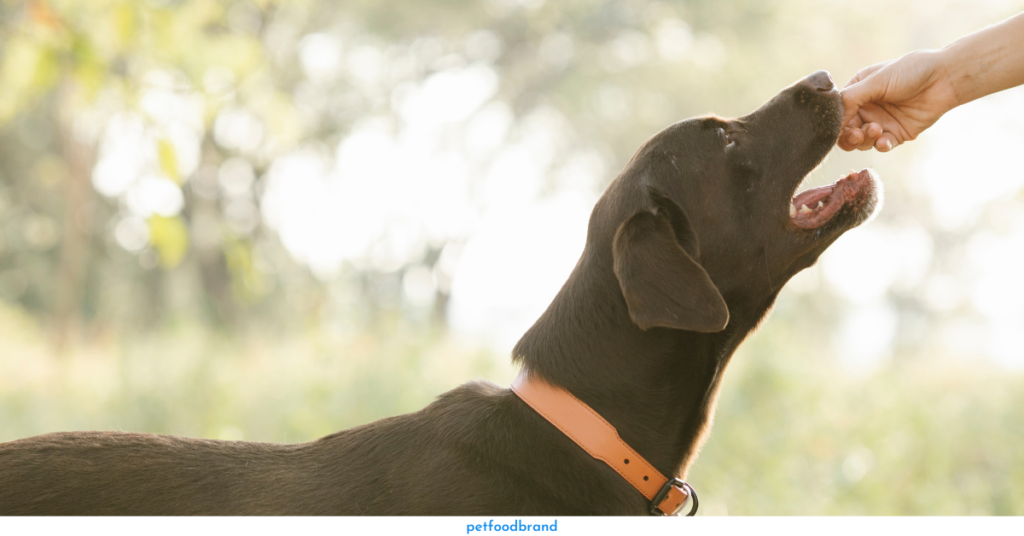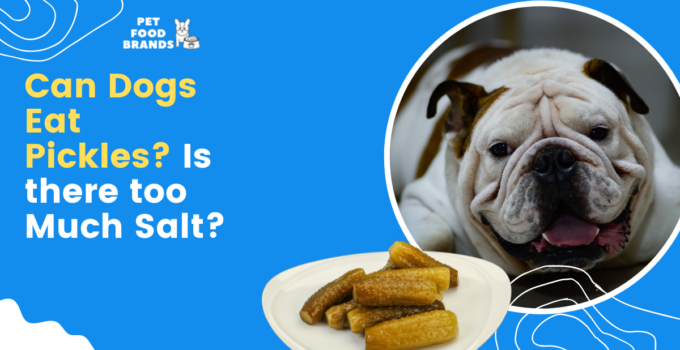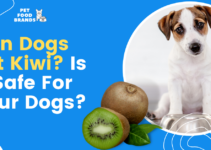The answer is it depends. If the pickle is salt-free, a dog can eat it safely. If the pickle contains too much salt, it can be dangerous for a dog. The pickles containing salt are high in sodium which can lead to sodium ion poisoning.
Most pickles also contain garlic, onion, and sugar. These ingredients are known to cause vomiting, diarrhea, depression, tremors, and fatigue in dogs.
143g of salt-free pickles offer 17 calories, 4g carbohydrates, 1g protein, 0.06g calcium, 5% vitamin A, 3% iron, and 2% vitamin c.
Although pickles contain some vitamins and minerals beneficial to dogs, they can also bring a range of problems. So, it is not a good idea to add pickles to your dog’s diet.
Health benefits

- Fermented pickles are full of healthy bacteria called probiotics. These are good for your dog’s gut health.
- Cucumbers are high in beta-carotene, which can be converted by dogs into Vitamin A. Beta-carotene has been shown to decrease the risk of death from diseases, such as heart disease, cancer, or respiratory problems.
- Dogs with muscle cramps might be given salt and sugar-free pickle juice. One study showed that it was better than water at relieving them, but more research needs to be done.
- Pickle juice may help keep your dog’s blood sugar in check.
- Dill in pickles can help your dog’s bad breath and may reduce the cognitive effects of aging. Dill also has powerful antioxidants which can help lessen inflammation & prevent certain cancers.
Risks
- Consuming too much salt can lead to a range of health issues, such as unmanageable urination, diarrhea, vomiting, and depression. Some dogs are even susceptible to drastic problems such as tremors and seizures or even death.
- Dogs with kidney problems shouldn’t eat vinegar as it can result in more issues.
- There are several spices used to make pickles, many of which pose a health risk to pets that want to eat your pickles. For example, garlic powder is often found in pickle recipes and ingestion can severely damage cells; this can lead to anemia or death as a result.
- Pickles also contain onion powder and large amounts of onion may lead to anemia in dogs. Pickles are often soaked in red chili flakes or other spices that bring the heat. All of that spiciness can be irritating to a dog’s stomach.
How to feed pickles to a dog?

- Consult your veterinarian before introducing a new diet to your dog.
- Buy or make pickles that are free from salt, sugar, onion, garlic, or other spices.
- Do not feed regularly.
- Since there isn’t much nutritional value and results can be drastic, it is a good idea to avoid feeding pickles to your dog.
Can dogs eat sweet pickles?
No, sweet pickles are not good for dogs. Sugar can be very bad for dogs. Too much of it can cause tooth decay and lead to other health problems like periodontal disease. Many sweet pickles also contain Xylitol, an artificial sweetener that can be dangerous to dogs.
What to do if a dog ate pickles?
It’s natural for your pup to eat food, including the ones they find on the floor. Pickles are not toxic so having them occasionally isn’t a big deal. They’re high in sodium so keep an eye out for dehydration and make sure your pup has plenty of water. Call your vet if you notice anything unusual.

Ankita is a passionate pet lover and head of content at Pet Food Brands. With her extensive knowledge and research, she provides pet owners with top-quality information on dog food and nutrition. Her dedication to improving the lives of dogs makes her a leading voice in the industry.




